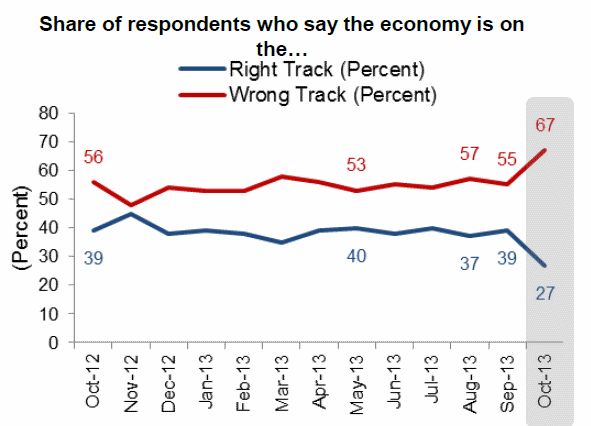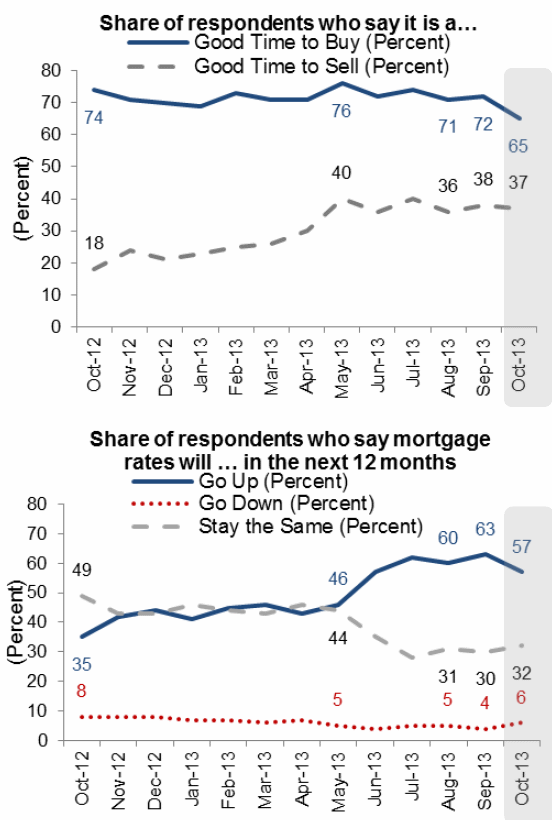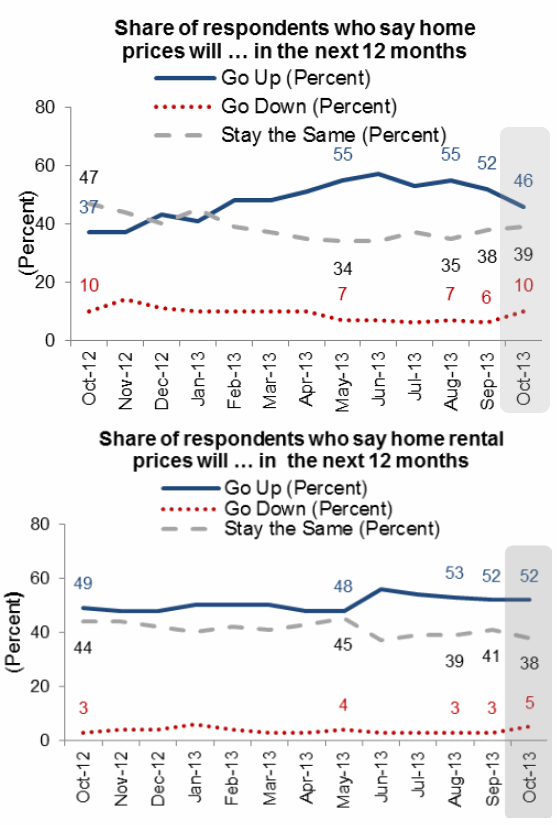Blog

Owners and Renters Shaken by Shutdown
The October National Housing Survey wasrnconducted by Fannie Mae during a period that coincided with the federalrngovernment shutdown and the debt ceiling debate. Fannie Mae spokesperson Pet Bakel said todayrnthat the dual crisis appears to have taken a toll on American’s outlook towardrnthe economy and housing market. </p
Bakel said the most notable take-away</bfrom the survey was the huge increase in the gap between those who think therneconomy is on the right track and those who think it is headed in the wrongrndirection. Wrong track answers soared byrn12 percentage points from September levels to 67 percent. This resulted in a 30 percentage point gaprnbetween the two responses and was the largest month-over-month change since thernsurvey was initiated in 2010.</p
 </p
</p
The share of people who said theirrnpersonal financial situation would get worse in the next 12 months hit a surveyrnhigh of 22 percent while those who reported significantly higher householdrnincome than 12 months ago fell to 22 points to 20. One percent more reported significant higherrnhousehold expenses than a year earlier. </p
The Housing Survey is conducted amongrnabout 1,000 homeowners and renters who are asked by phone for responses tornaround 100 question intended to assessrntheir attitudes toward owning and renting a home, home and rental pricernchanges, homeownership distress, the economy, household finances, and overallrnconsumer confidencern</p
Homeowners also cooled on whether it isrna good time to buy a house. Affirmativernresponses to that question fell to 65 percent, another survey low, from 72rnpercent. Respondents who thought it wasrna good time to sell also declined from 38 to 37 percent. Fewer Americans expect mortgage rates tornincrease over the next year, decreasing to 57 percent from 63 percent.</p
 </p
</p
The percentage of people who expectrnhomes to appreciate over the next 12 months fell by 4 percentage points to 46rnpercent and those who expect price declines rose by those same 4 points to 10rnpercent. The average price changernexpectation was 2.9 percent, 0.2 less than in September. Fifty two percent ofrnrespondents expect rents to rise, about the same as last month, but the averagernrent increase anticipated rose by 1 percent to 4.4 percent, a survey high. </p
 </p
</p
“Housing market sentiment hasrnclearly suffered in the wake of the recent government shutdown and debt ceilingrndebate,” said Doug Duncan, senior vice president and chief economist at FanniernMae. “In October, we saw attitudes toward both the economy and the currentrnbuying environment experience their largest one-month drops in the survey’srnthree-year history. While this decline in consumer optimism may portend arnslowing of the housing recovery, supply constraint data suggest that we arernlikely to see continued positive growth in home prices. That being said,rnOctober’s survey results suggest that consumer attitudes are highly responsivernto ongoing debate and decision-making in Washington. Three key budget and debtrnceiling dates loom in December, January, and February. The handling of eachrnwill likely play a key role in determining the pace and timing of any recoveryrnin consumer sentiment.”
All Content Copyright © 2003 – 2009 Brown House Media, Inc. All Rights Reserved.nReproduction in any form without permission of MortgageNewsDaily.com is prohibited.
Latest Articles
By John Gittelsohn August 24, 2020, 4:00 AM PDT Some of the largest real estate investors are walking away from Read More...
Late-Stage Delinquencies are SurgingAug 21 2020, 11:59AM Like the report from Black Knight earlier today, the second quarter National Delinquency Survey from the Read More...
Published by the Federal Reserve Bank of San FranciscoIt was recently published by the Federal Reserve Bank of San Francisco, which is about as official as you can Read More...

Comments
Leave a Comment